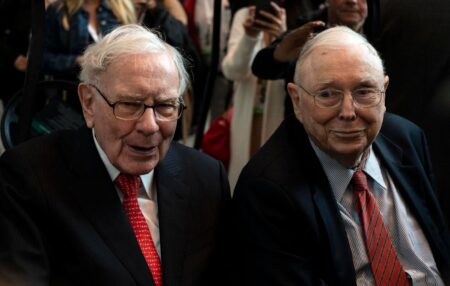Coastal grandmother and grandmillennial may be popular design trends on TikTok but getting younger generations to financially plan for those years is more of a challenge.
Nearly a third of Gen Z workers are not are not saving for retirement, according to a recent Bankrate survey, and roughly the same amount report feeling behind on their planning. While the Gen Z cohort, which includes workers between the ages of 18-25, has the benefit of time to build the foundations of their financial wellbeing, the lack of savings points to a larger, disturbing trend in retirement planning. Feeling a lack of preparedness only increases as retirement draws near: 46% of millennials, aged 26-41, feel behind, while 65% of Gex Xers and 71% of baby boomers also reported feeling inadequately prepared for retirement.
The lack of planning among younger generations is somewhat surprising considering there is a cohort of that generation that has been romanticizing the aesthetic of their golden years on social media. Coastal grandmother and grandmillennial, are two of the emerging fashion and design trends on TikTok in which Gen Z and millennials picture themselves living life as though they’re Ina Garten or a character in a Nancy Meyers movie.
But that fetishization about one’s golden years means little without the financial safety net to make those dreams come true. Here’s three ways to market retirement to younger generations.
The Power of Compounding Interest: There’s no way of getting around retirement planning talk without bringing a little math to the table. In one’s early working years — with lower pay and likely student debt — it can seem pointless to save but even setting aside a few dollars can mean huge gains for the future. Saving as little as $100 a month for 50 years could yield a nest egg of $350,000, assuming a 6% annualized return. If that same person waited 10 years to start saving, their nest egg would only be $186,000 — that’s a $164,000 difference even though the amount invested is only $12,000 less.
Also, since many employers match their employee’s 401k contributions up to a certain level, there is also the added benefit of having so-called “free money” also benefiting from compounding interest.
Demystify Retirement Planning: The financial services industry does no service to would-be savers by making things unnecessarily complex. Just as employees are already overwhelmed settling into new jobs, they’re often presented with their company’s retirement plan options which can range from defined benefit, defined contribution, traditional, and non-traditional. Even those categories have their own sub-categories with their own rules regarding tax treatment and contributions. And that’s before, employees even know what assets they can invest in!
Understandably, the jargon-laden industry can leave people feeling ill-equipped to make any decision, so they take no action, putting their financial future at risk.
Instead the language around retirement planning should be more clear cut — saving for long term needs. This simpler framework allows savers to think about the money they will set aside for the next year or so versus the money they want to set aside for their retirement years. Just spending a little bit of time demystifying and simplifying the financial terminology could mean years of investment gains.
Reimagine Retirement: If there’s one thing to learn about the coastal grandmother aesthetic, it’s that retirement doesn’t mean “old.” Retirement years can mean decades of second and third acts — provided one has saved adequately. For so long, retirement was thought of as an end point when many new retirees are finding it a time of new beginnings to explore new hobbies.
Rather than urge young people to save for an endpoint, discuss how saving earlier can mean creating a pathway for financial freedom earlier in life.
Read the full article here













